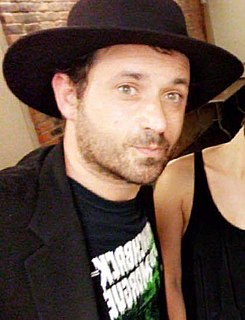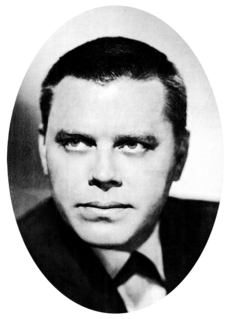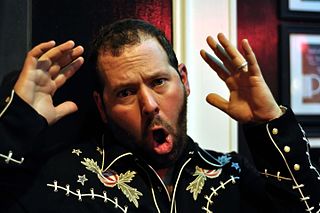A Quote by Mario Vargas Llosa
When I was young, I was a passionate reader of Sartre. I've read the American novelists, in particular the lost generation - Faulkner, Hemingway, Fitzgerald, Dos Passos - especially Faulkner. Of the authors I read when I was young, he is one of the few who still means a lot to me.
Related Quotes
Do you think that Hemingway knew he was a writer at twenty years old? No, he did not. Or Fitzgerald, or Wolfe. This is a difficult concept to grasp. Hemingway didn't know he was Ernest Hemingway when he was a young man. Faulkner didn't know he was William Faulkner. But they had to take the first step. They had to call themselves writers. That is the first revolutionary act a writer has to make. It takes courage. But it's necessary
After college, I went on a real big classics kick. Read everything by Faulkner, Hemingway, Woolf, Proust, Dostoevsky. And that classics train dropped me off at 'Dracula.' Halfway through it, I understood I'd never be going back, never 'leaving' the genre again. Since then, I've been on a fairly strict horror diet.
I read some older books when I worked at Barnes And Noble, like some of the American classics. I read a lot of Hemingway. I fell in love with Hemingway's prose and with the way he wrote. I feel like he's talking to me, like we're in a bar and he's not trying to jazz it up and sound smart, he's just being him.
The 1992 US Olympic basketball team is the best sports team ever, the equivalent of rounding up the greatest American writers of the last century or so and watching them collaborate: 'OK, Twain, you do the dialogue and hand off to Faulkner. He'll do the interior monologue. Hemingway will edit - no, don't make that face, you know you overwrite. And be nice to Cheever. He's young, but he's got a good ear. Wharton and Cather can't play - they're girls.'
I am a rereader. Quality is variety if you wait long enough. Barthes, Baudelaire, Benjamin, Celine, Duras, Faulkner, Fitzgerald, Melville: There is so much to revisit. 'Ingrid Caven,' by Jean-Jacques Schuhl, is always in rotation. I used to read 'Morvern Callar,' by Alan Warner, every year - I adored that book.






































